 |
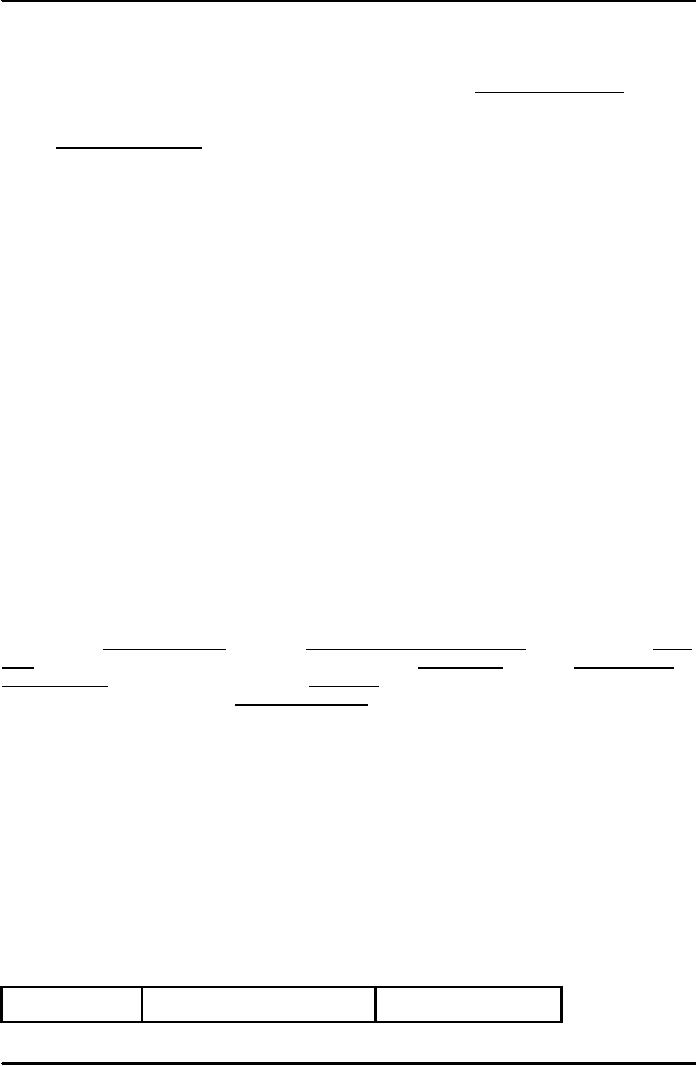
VU
Lesson
36
JOB
INQUIRY LETTER AND INTERVIEW
Use a
job-inquiry letter to request an
application form, which is a
standardized data sheet
that
simplifier's
comparison of applicant's
credentials.
Your
care in filling out
application forms suggests to the employer
that you will be thorough
and
careful
in your work.
Guideline
Writing Follow-up
Messages
B.
Inquiries
1.
Make an inquiry by letter, phone,
or email if you aren't informed of
the decision by the promised
date.
2.
Follow the plan for direct requests:
main idea, necessary
details, specific
request.
C.
Requests for a time
extension.
1.
Request an extension if you
have pending interviews and need time to
decide about an
offer.
2.
Open with an expression of
warmth.
3.
In the middle, explain why you need
more time and express
continued interest in the
company.
4.
In the close, promise a quick
decision if your request is
denied, and ask for a
confirmation if your
request
is
granted.
Application
Follow-Ups
Unsolicited
even if you've received a
letter acknowledging your application
and saying that it will
be
kept
on file, don't hesitate to
send a follow-up letter
three months later to show that
you are still
interested.
Three
months have elapsed since I applied to
you for an accountant
position, but I want to let
you
know
that I ma still very interested in
joining your company.
Please
keep my application in your
active file, and let me
know when a position opens
for a capable
accountant.
Unless
you state otherwise, the
human resources office is
likely to assume that you've
already found
a
job and are no longer
interested in the organization. Moreover,
requirements change. A follow-up
letter
can
demonstrate that you're sincerely
interested in working for the
organization, that you're persistent
in
pursuing
your goals, and that you're
upgrading your skills to make yourself a
better employee. And it
might
just
get you an interview.
If
your application letter and
resume fail to bring a
response within a month or
so, following up
with
a second letter to keep your
file active. This follow-up
letter also gives you a
chance to update your
original
application with any recent
job-related information.
Since
applying to you on May 3 for
an executive secretary position, I
have completed a course
in
office
management at Community College. I
received straight A's in the course. I
now am a proficient
user
of
MS Word, including macros and
other complex functions.
Please
keep my application in your
active file, and let me
know when you need a skilled
executive
secretary.
Understanding
the Interview Process
Big
Companies
Small
Companies
165
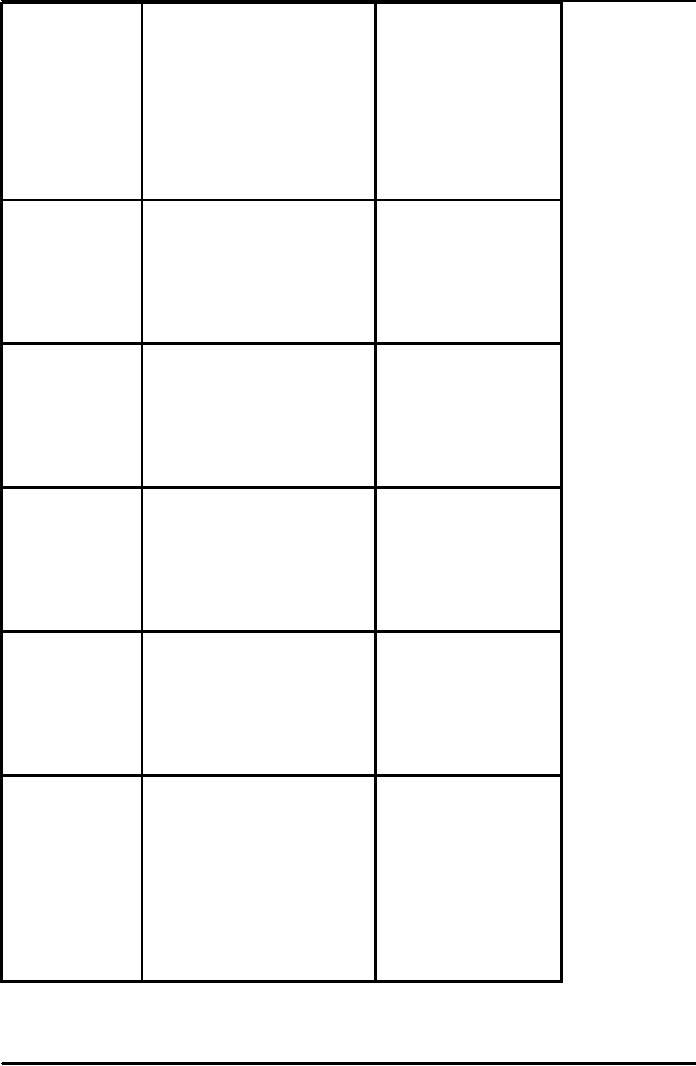
VU
Number
and type of Consistently hire
thousands of new
Hire
requirement fluctuate,
applicants
sought
employees
each year; have
relatively
often
looking for
flexibility,
specific
hiring criteria, depending
versatility;
often somewhat
on
the position; tend to be
highly
more
open-minded
selective
Person
or
Handled
by human resources or
In
really small companies,
department
in charge personnel department
the
founder/top manager
of
recruiting
makes
all hiring decisions
General
recruiting Governed by formal
policies and
Conducted
informally on an
and
interviewing style procedures;
typically involves
series
as-needed
basis without a
of
several interviews; approach is
standard
procedure; hiring
generally
systematic, well planned,
decision
may be made after
and
well financed
first
interview or may drag
on
for several months;
Where/how
they
Use
national and local
newspapers, Rely heavily on word
of
advertise
trade
journals, campus placement mouth
and local newspapers
offices,
word of mouth, online
job
banks,
company websites
Use
of employment Roughly 60 percent
use
Agency
use varies widely
agencies,
search firms employment agencies, whereas
40 among small
companies;
percent
use executive search firms;
cost may be a factor
Responsiveness
to Received hundreds of unsolicited
Receive relatively few
unsolicited
resumes resumes, which
typically get less
unsolicited
resumes, so they
attention
than resumes obtained
pay
close attention to
them;
through
departments' own planned however, given
limited
recruiting
program; most companies
hiring needs, chances
are
will
scan unsolicited resumes into a
slim that your resume
will
database
if they maintain one; best arrive when
company has a
to
send resume directly to
line
corresponding
opening.
manager
or potential co-worker in
department
where you want to
work
166
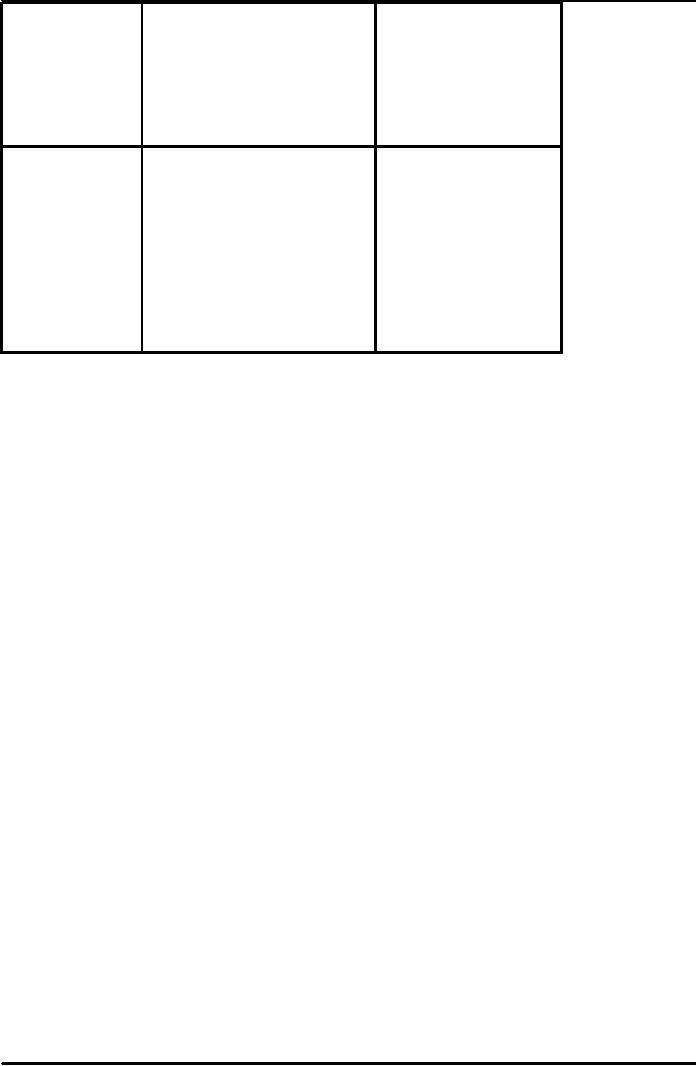
VU
Reliance
on campus On campus recruiting
programs,
The
smaller the company,
recruiting
relatively
small number
the
less likely it is to recruit
in
this manner.
Best
way for
Use
campus placement office
to
Check
with campus
candidate
to
schedule
interviews with companies placement
office; try to
approach
company
that
recruit on your campus. If
make
direct personal contact
company
does not recruit on your
with owner/manager or
campus,
call the person in charge of department
head; get names
college
recruiting, explain your
and
addresses from
chamber
situation,
and ask for advice on
best head; get names
and
way
to get an interview
addresses
from chamber of
commerce,
business
directories,
send resume and
application
letter.
Understanding
the Interview Process
An
employment interview is a formal meeting
in which both employer and applicant
ask questions
and
exchange information to learn
more about each
other.
Dual
purpose
1.
The organization's main objective is to
find the best person
2.
The applicant's main objective is to
find the job test suited to
his or her goals and
capabilities.
Organizations
hundreds of new employees
every years take a more
systematic approach to the
recruiting
and interviewing
process
Adjust
your job search according to
the company's size and
hiring practices.
Start
seeking jobs well in advance
of the date you want to start
work. Begin job search as
much as
nine
months. During downturns in the economy,
early planning is even more
crucial.
The
typical Sequence of
Interviews
In
a typical job search, you
can expect to have many
interviews before your accept a job
offer. A
candidate
undergoes a rigorous interview process
that can take.
Most
organization interview an applicant several
times before extending a job
offer:
·
Screening
stage
·
Selection
stage
·
Final
stage
The
Typical Sequence of
Interviews
Interviews
at the screening stage are
fairly structured, so applicants
are often asked roughly
the
same
questions. Many companies
use standardized evaluation sheets to
"grade".
Technology
has transformed the initial,
get-to-know-you interview, allowing
employers to screen
candidates
by phone, video interview, or
computer.
167
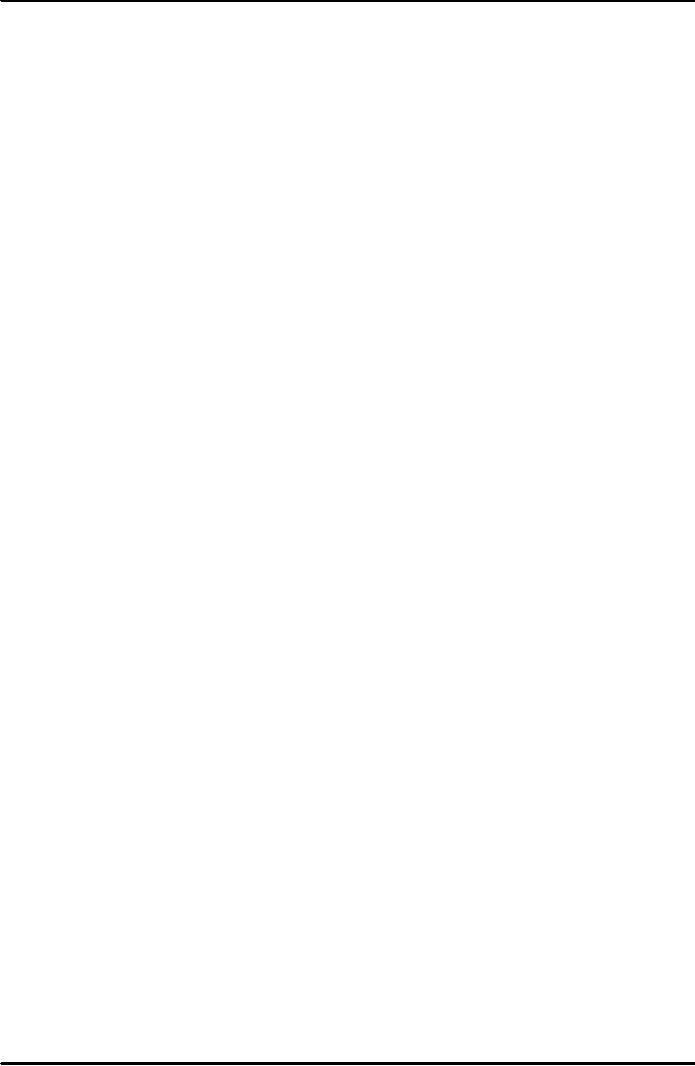
VU
During
the screening stage of interviews, try to
differentiate yourself from other
candidates. You
Might
face a panel of several interviewers
who ask you questions
during a single session. By
noting how you
listen,
think, and express yourself, they
can decide how likely
you are to get along with
colleagues.
Best
approach during this selection
stage on interviews is to show interest
in the job, related
your
skills
and experience to the organization's
needs, listen attentively, ask
insightful question, and
display
enthusiasms.
During
the final stage, the interview
may try to sell your on
working for the firm.
You
may be invited back for a
final evaluation by a higher-ranking
executive who has the
authority
to
make the hiring decision and
to decide to your compensation. As
underlying objective of the final stage
is
often
to sell you on the advantages of
joining the organization.
Organizations
use various types of interviews to
discover. A structured interview is
generally used
in
the screening stage. A Structured
Interview
Open-ended
Interview
Group
Interview
Stress
Interview
Video
Interview
Situational
Interview
structural
interview is controlled by the
interviewer to gather facts.
Here the employer controls the
interview
by asking a series of prepared
questions in a set order.
Working form a checklist, the
interviewer
asks
candidates each question,
staying within an allotted time
period. All answers are
noted. Although useful
in
gathering facts, the structured interview
is generally regarded as a poor
measure of an applicant's
personal
qualities.
Some companies use
structured interviews to create
uniformity in their hiring
process.
Types
of Interview
Opening-ended
interview is less formal and
unstructured. In an open-ended interview, the
recruiter
encourages
the candidate to speak freely.
The interviewer poses broad,
open-ended question and
encourages
the applicant to talk freely. Good
for bringing out an
applicant's personality and is used to
test
professional
judgment. However, some candidates
reveal too much, rambling on
about personal or
family
problems
that have nothing to do with
their qualifications for employment,
their ability to get along
with
co-workers,
or any personal interests
that could benefit their
performance on the job. So be careful.
To
strike
a delicate balance between being
friendly and remembering
that you're in a business
situation.
Group
interviews meeting with several
candidates simultaneously. Group
interviews help recruiters
see
how candidate interact. This types of
interview is useful for
judging interpersonal communication.
It
tells how candidates relate
to one another. Do they smile?
Are they supportive of one
another's
comments?
Do they try to score points at
each other's expense?
Perhaps
the most unnerving types of
interview is the stress interview.
Stress interviews help
recruiters
see how you handle yourself under
pressure. See how well a
candidate handles stressful
situations.
During
a stress interview, you
might be asked pointed
questions designed to irk or
unsettle you. You
might
be
subjected to long periods of
silence, criticisms of your
appearance, deliberate interruptions,
abrupt or
even
hostile reactions by the
interviewer.
Video
interviews require some
special preparation.
As
employers try to cut travel
costs, the video interview is
becoming more popular.
Companies use
videoconferencing
systems to screen middle-management
candidates or to interview new
recruits at
universities.
Experts recommend that candidates
prepare a big differently
for a video interview than
for an
in-person
meeting:
·
Ask
for a preliminary phone conversation to
establish rapport with the
interviewer.
168
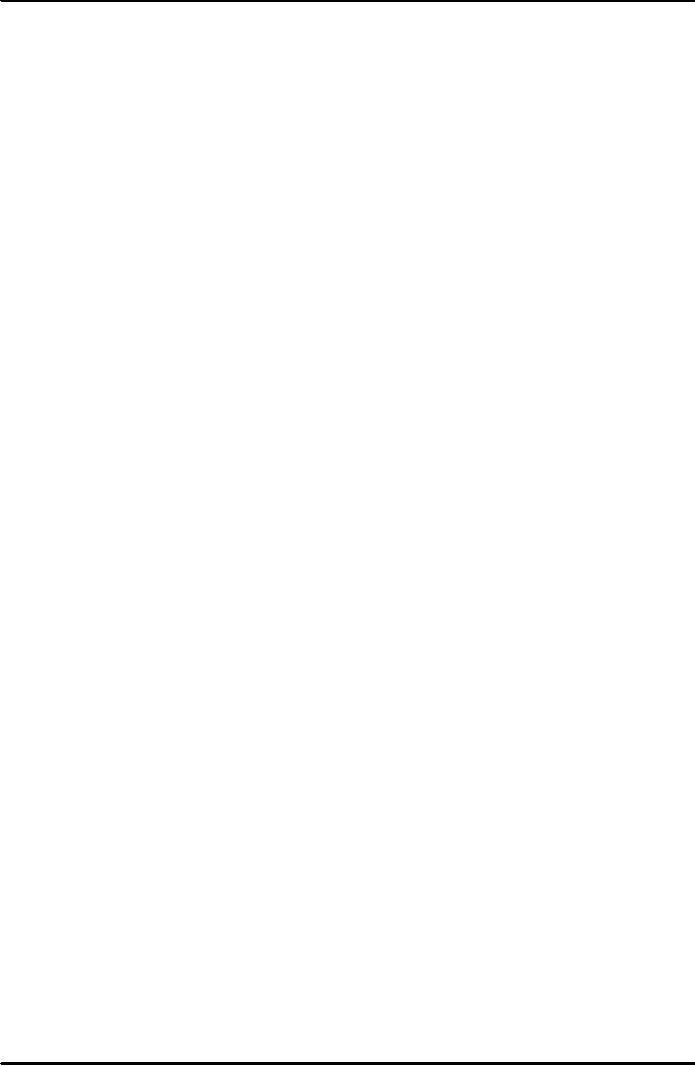
VU
·
Arrive
early enough to get used to the equipment
and setting.
·
During
the interview, speak clearly
but not more slowly than
normal.
·
Sit
straight.
·
Look
up but not down.
·
Try
to show some animation, but
not too much (since it
will appear blurry to the
interviewer).
Situational
interview. In situational
interviews, candidates must explain
how they would handle
a
specific
set of circumstances. "How
would you handle this?" Proponents of
this approach claim
that
interview
is about the job, not about
a candidate's five-year goals, weaknesses
or strengths, challenging
experiences,
or greatest accomplishment. So the situational
interview is a hands-on, at-work
meeting
between
an employer who needs a job done
and a worker who must be
fully prepared to do the
work.
Regardless
of the type of interview you may
face, a personal interview is
vital because your
resume
can't
show whether you're lively and
outgoing or subdued and low
key, able to take direction or
able to take
charge.
Each job requires a
different mix of personality traits.
The interview's task is to find
out whether
you
will be effective on the job.
What
Employers Look
For
Having
the right personality
traits for the job is
important in today's workplace. A sense
of
humor
tops
the list because they believe
that people who don't take
themselves too seriously are
better able
to
cope with the stress.
Employees who are self-motivated,
enthusiastic, not afraid to make
decisions,
willing
to take risks, intelligent,
good communicators, and
considerate of others.
Current
research shows that
employees with certain personality traits
tend to be more successful
at
their
job. As a result, many
employers today seek candidates
with a high "emotional
intelligence," or EQ
(emotional
quotient). People with a
high EQ generally possess
these desirable attributes:
self-awareness,
good
impulse control, persistence,
confidence, self-motivation, and empathy,
as well as the ability
to
persuade, articulate a mission,
interpret the mood of a group, and
communicate with people in
terms
they
understand.
What's
your EQ?
·
Think
clearly and stay focused on
the task at hand while under
pressure
·
Admit
to your own mistakes
·
Meeting
commitments and keep
promises
·
Hold
yourself accountable for meeting
your goals
·
Seek
new ideas for a variety of
sources
·
Handle
multiple demands and
changing priorities.
·
Make
sacrifices to meet an important
organizational goal.
·
Cut
through red tape and bend
outdated rules when necessary
·
Seek
fresh perspectives, even if
that means trying something
totally new
·
Separate
form an expectation of success rather
than a fear of
failure
·
Try
to learn how to improve your
performance
·
Set
challenging goals and take
calculated risks to reach
them.
When
it comes down to it, every
job has basic qualifications. Employers
first look for-two
things:
evidence
that a candidate will fit in
with the organization and proof
that the person can handle a
specific
job.
Compatibility
Interviewers
try to decide whether a candidate
will be compatible with the other people
in the
organization.
Compatibility with the organization is judgment on the
basis of personal background
attitudes,
and
style. Some interviewers believer that
personal background is an indication of
how well the
candidate
will
fit in, so they might ask
about your interests, hobbies,
awareness of world events,
and so forth. You
can
expand
your potential along these
lines by reading widely, making an
effort to meet new people,
and
participating
in discussion groups, seminars,
and workshops.
169
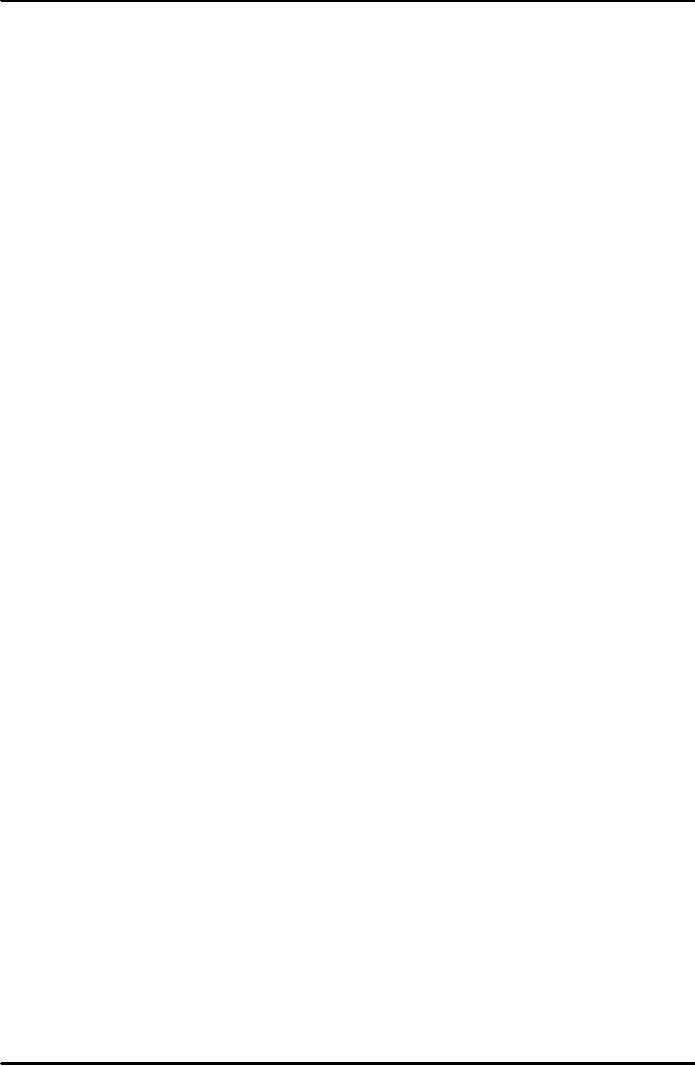
VU
Qualifications
for the Job
Suitability
for the specific job is judged on the
basis of
·
Academic
preparation
·
Work
experience
·
Job-related
personality traits
When
you're invited to interview for a
position, the interviewer may
already have some idea
of
whether
you have the right qualifications,
based on a review of your resume.
But during the interview,
you'll
be
asked to describe your education
and previous jobs in more
depth so that the interviewer
can determine
how
well your skills match the
requirements. In many cases, the
interview will be seeking
someone with the
flexibility
to apply diverse skills in several
areas.
Pre-employment
tests attempt to provide objective,
quantitative information about a
candidate's
skills,
attitudes, and
habits.
Pre-employment
Test
Three
types of pre-employment tests frequently
administered by companies are
job skills tests,
psychological
tests, and drug tests.
Job-skills tests, the most
common type, are designed to
access
competency
or specific abilities needed to perform a
job. Psychological tests
usually take the form
of
questionnaires.
These tests can be used to
assess overall intellectual ability,
attitudes toward work,
interests,
managerial
potential, or personality characteristics
including dependability, commitment, honesty,
and
motivation.
Preparing
for a Job Interview
List
six tasks you need to
complete to prepare for a
successful job
interview.
For
a success interview, preparation
is mandatory. The
best way to prepare for a
job interview is
to
think about the job itself
and prepare. It's perfectly
normal to feel
a little anxious before an
interview.
But
good preparation will help
you perform well. Be sure to
consider
any cultural differences when
preparing
for interviews, and base
your approach on what you
audience expects. Before the interview,
learn
about
the organization, think ahead about
questions, bolster your confidence,
polish you interview
style,
plan
to look good, and be ready when
you arrive.
Learn
About the
Organization
When
planning your employment search,
you probably already
researched the companies you
sent
your
resume to. But now
that you've been invited
for an interview, you'll want to
fine-tune your
research
and
brush up on the facts you've
collection.
Today's
companies expect serious
candidates to demonstrate an understanding of the
company's
operations,
its market, and its
strategic and tactical
problems. Learning about the organization
and the job
enables
you to show the interviewer
just how you will meet the
organization's particular needs.
Planning
for a Successful Interview
How
can you practice for a
job interview? What are some
questions that you might be
asked, and
how
should you respond? What
questions are you not
obligated to answer?
Think
Ahead about Questions
Planning
ahead for the interview's question will
help you handle them more
confidently and
intelligently.
Moreover, you will want to
prepare intelligent questions of
your own.
Interview
Strategies
1.
What was the toughest
decision you ever had to
make?
2.
Why do you want to work for this
organization?
170
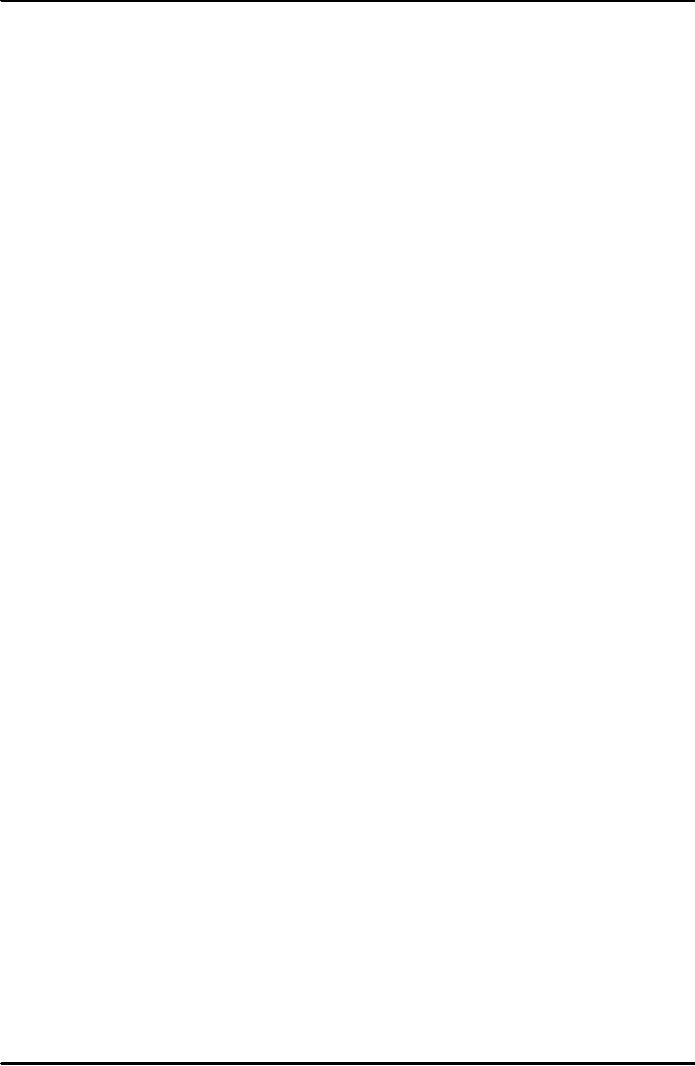
VU
3.
Why would we employ you?
4.
If we hire you, what changes would
you make?
5.
Can we offer you a career
path?
6.
What are your greatest
strengths?
7.
What are your greatest
weaknesses?
8.
What didn't you like
about previous job you've
held?
9.
Are there any weaknesses in
your education or
experience?
10.
Where do you want to be five
years form now?
11.
What are you salary
expectations?
12.
What would you do
if......
13.
What type of position are
you interested in?
15.
Tell me something about
yourself?
16.
Do you have any question about the
organization or the job?
1.
What was the toughest
decision you ever had to
make?
2.
Why do you want to work for this
organization?
3.
Why would we employ you?
4.
If we hire you, what changes would
you make?
5.
Can we offer you a career
path?
6.
What are your greatest
strengths?
7.
What are your greatest
weaknesses?
8.
What didn't you like
about previous job you've
held?
9.
Are there any weaknesses in
your education or
experience?
10.
Where do you want to be five
years form now?
11.
What are you salary
expectations?
12.
What would you do
if......
13.
What type of position are
you interested in?
15.
Tell me something about
yourself?
16.
Do you have any question about the
organization or the job?
Bolster
Your Confidence
If
you feel shy or self-conscious,
remember that recruiters are
human too.
By
building your confidence,
you'll make a better impression.
The best way to counteract
any
apprehension
is to remove its source. You
may feel shy or self-conscious
because you think you
have some
flaw
that will prompt others to
reject you. Bear in mind, however,
that you're much more
conscious of your
limitations
than other people
are.
Polish
your interview Style
Staging
mock interview with a friend is a
good way to hone your
style.
Nonverbal
behaviour has a significant effect on the interview's
opinion of you.
Confidence
helps you walk into an
interview, but one's you're
there, you want to give the
interviewer
an impression of poise, good
manners, and good judgment.
Some job seekers hire
professional
coaches
and image consultants to
create just the right
impression.
Plan
to Look Good
To
look like a winner
·
Dress
conservatively
·
Be
well groomed
·
Smile
when appropriate
171
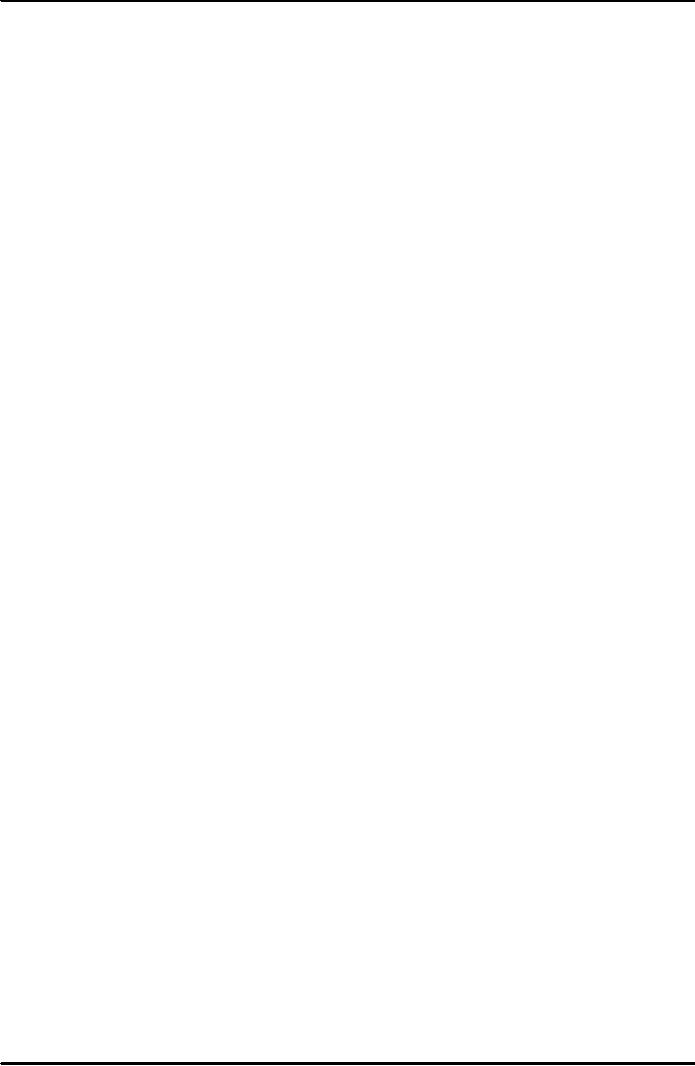
VU
Physical
appearance is important because
clothing and grooming reveal
something about a
candidate's
personality and professionalism. When it
comes to clothing, the best
policy is to dress
conservatively.
Wear the best-quality businesslike cloth
you can, preferably in a dark, solid
color.
Interviewing
for Success
Be
prepared for the interview
by
·
Taking
proof of your
accomplishments
·
Arriving
on time
·
Waiting
graciously
How
you handle a particular interview depends
on where you stand in the
interview process. If
you're
being interviewed for the first time,
your main objective is to differentiate
yourself from the many
other
candidates who are also
being screened.
In
Warm-up
Of
the three stages, the warm-up is the most
important, even though it
may account for only
a
small
fraction of the time you spend in the
interview. Psychologists say
that 50 percent of an interview's
decision
is made within the first 30 to 60
seconds, and another 25 percent is
made within 15 minutes. If
you
get
off to a bad start, it's
extremely difficult to turn the
interview around.
The
Questions and answer
stage
Questions
and answers will consume the
greatest part of the interview. The
interviewer will ask
you
about
your qualifications and discuss
man of the points mentioned in your
resume. You'll also be
asking
questions
of your own.
Dealing
with Questions
Tailor
your answers to emphasize
your strengths
Listening
to the Interviewer
Paying
attention to both verbal and
nonverbal messages can help
you turn the question and
answer
stage
to your advantage
Fielding
Discriminatory Questions
Some
question should not be asked by
interviews.
To
Close
Like
the opening, the end of the interview is
more important than its
duration would indicate.
In
the
last few minutes, you need
to evaluate how well you've
done. You also need to
correct any
misconceptions
the interviewer might
have.
Concluding
Gracefully
Conclude
the interview with courtesy
and enthusiasms:
You
can generally tell when the
interviewer is trying to conclude the
session. He or she may
ask
whether
you have any more
questions, sum up the discussion,
change position, or indicate with a
gesture
that
the interview is over.
Discussing
Salary
Be
realistic in your salary
expectations and diplomatic in
your negotiations.
If
you do receive an offer
during the interview, you'll naturally
want to discuss salary. However,
let
the
interviewer raise the subject. If
asked your salary
requirements, say that you
would expect to receive
the
standard
salary for the job in
question.
When
to Negotiate
172
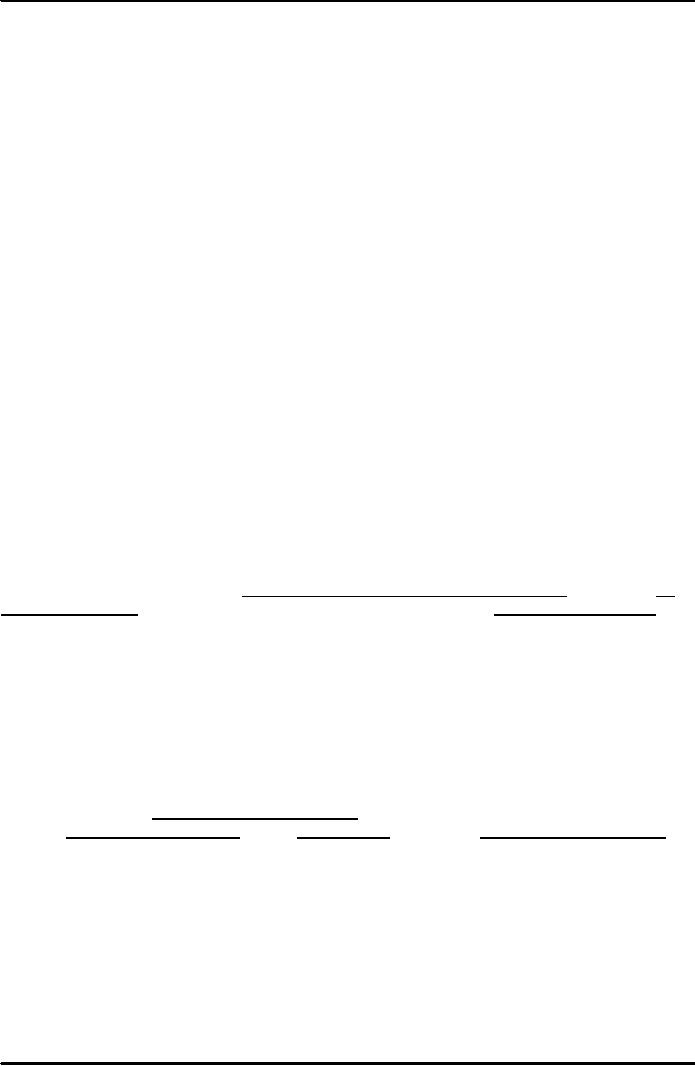
VU
If
you don't like the offer,
you might try to negotiate,
provided you're in a good bargaining
position
and
the organization has the flexibility to
accommodate you.
What
to Negotiate
Negotiating
benefits may be one way to
get more value from an
employment package.
Even
if you can't bargain for
more money, you may be able
to win some concessions on
benefit
and
perquisites. The value of negotiating
can be significant because benefits often
cost employer 25 to 45
percent
of your salary.
Interview
Notes
Keep
a written record of your job
interviews.
If
yours is a typical job search,
you'll have many interviews before
you accept an offer. For
that
reason,
keeping a notebook on binder of interview
notes can help you
refresh your memory of
each
conversation.
As soon as the interview ends,
jot down the names and
titles of the people you met.
Briefly
summarize
the interviews answers to your
questions.
·
During
the selection stage of interviews, you
may interview with several
people, perhaps even all
at
once.
Night face a panel of
several interviewers who ask
you questions during a
noting how you
listen,
think, and express yourself, they
can decide how likely
you are to get along with
colleagues.
Best
approach during this selection
stage of interviews is to show interest
in the job, relate
your
skills
and experience to the organization's
needs listen attentively, ask
insightful questions,
and
display
enthusiasm.
·
During
the final stage, the interviewer
may try to sell you on
working for the firm. May be
invited
back
for a final evaluation by a
higher-ranking executive who
has the authority to make the
hiring
decision
and to decide on your
compensation. An underlying objective of the
final stage is often
to
sell
you on the advantages of joining the
organizations.
Application
Follow-Ups
If
your application letter and
resume
fail to bring a response
within a month or so,
follow up
with
a second letter to
keep your file active. This
follow-up letter also gives
you
a chance to update your
original
application with any recent
job-related information:
Since
applying to your on May 3
for an executive secretary
position, I have completed a
course in
office
management at ABC Community
College. I received straight A's in the
course. I now am a
proficient
user
of MS Word, including macros and
other complex functions.
Please
keep my application in your
active file, and let me
know when you need a skilled
executive
secretary.
A
Letter of Acknowledge
Even
if you've received
a letter acknowledge your
application and saying that
it will be kept on
file,
don't hesitate
to send a follow-up
letter three
months later to
show that
you are still interested:
Three
months have elapsed since I applied to
you for an underwriting
position, but I want to
let
you
know that I am still very
interested in joining your
company.
I
recently completed a four-week temporary
work assignment at a large
local insurance agency.
I
learned
several new verification
techniques and gained
experience in using the online computer
system. This
experience
could increase my value to
your underwriting department.
173
Table of Contents:
- COMMUNICATION:Definition of Communication, Communication & Global Market
- FLOW OF COMMUNICATION:Internal Communication, External Communication
- THEORIES OF COMMUNICATION:Electronic Theory, Rhetorical Theory
- THE PROCESS OF COMMUNICATION & MISCOMMUNICATION:Message
- BARRIERS IN EFFECTIVE COMMUNICATION /COMMUNICATION FALLOFF
- NON- VERBAL COMMUNICATION:Analysing Nonverbal Communication
- NON- VERBAL COMMUNICATION:Environmental Factors
- TRAITS OF GOOD COMMUNICATORS:Careful Creation of the Message
- PRINCIPLES OF BUSINESS COMMUNICATION:Clarity
- CORRECTNESS:Conciseness, Conciseness Checklist, Correct words
- CONSIDERATION:Completeness
- INTERCULTURAL COMMUNICATION
- INTERCULTURAL COMMUNICATION:Education, Law and Regulations, Economics
- INDIVIDUAL CULTURAL VARIABLES:Acceptable Dress, Manners
- PROCESS OF PREPARING EFFECTIVE BUSINESS MESSAGES
- Composing the Messages:THE APPEARANCE AND DESIGN OF BUSINESS MESSAGES
- THE APPEARANCE AND DESIGN OF BUSINESS MESSAGES:Punctuation Styles
- COMMUNICATING THROUGH TECHNOLOGY:Email Etiquette, Electronic Media
- BASIC ORGANIZATIONAL PLANS:Writing Goodwill Letters
- LETTER WRITING:Direct Requests, Inquiries and General Requests
- LETTER WRITING:Replies to Inquiries, Model Letters
- LETTER WRITING:Placing Orders, Give the Information in a Clear Format
- LETTER WRITING:Claim and Adjustment Requests, Warm, Courteous Close
- LETTER WRITING:When The Buyer Is At Fault, Writing Credit Letters
- LETTER WRITING:Collection Letters, Collection Letter Series
- LETTER WRITING:Sales Letters, Know your Buyer, Prepare a List of Buyers
- MEMORANDUM & CIRCULAR:Purpose of Memo, Tone of Memorandums
- MINUTES OF THE MEETING:Committee Members’ Roles, Producing the Minutes
- BUSINESS REPORTS:A Model Report, Definition, Purpose of report
- BUSINESS REPORTS:Main Features of the Report, INTRODUCTION
- BUSINESS REPORTS:Prefatory Parts, Place of Title Page Items
- MARKET REPORTS:Classification of Markets, Wholesale Market
- JOB SEARCH AND EMPLOYMENT:Planning Your Career
- RESUME WRITING:The Chronological Resume, The Combination Resume
- RESUME & APPLICATION LETTER:Personal Details, Two Types of Job Letters
- JOB INQUIRY LETTER AND INTERVIEW:Understanding the Interview Process
- PROCESS OF PREPARING THE INTERVIEW:Planning for a Successful Interview
- ORAL PRESENTATION:Planning Oral Presentation, To Motivate
- ORAL PRESENTATION:Overcoming anxiety, Body Language
- LANGUAGE PRACTICE AND NEGOTIATION SKILLS:Psychological barriers
- NEGOTIATION AND LISTENING:Gather information that helps you
- THESIS WRITING AND PRESENTATION:Write down your ideas
- THESIS WRITING AND PRESENTATION:Sections of a Thesis (Format)
- RESEARCH METHODOLOGY:Studies Primarily Qualitative in Nature
- RESEARCH METHODOLOGY:Basic Rules, Basic Form, Basic Format for Books